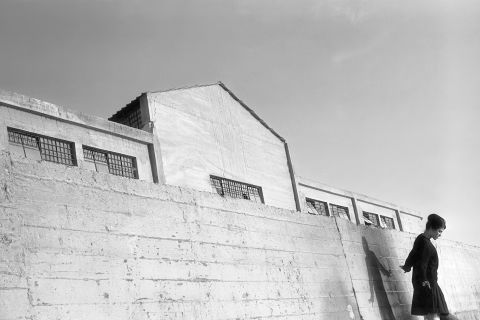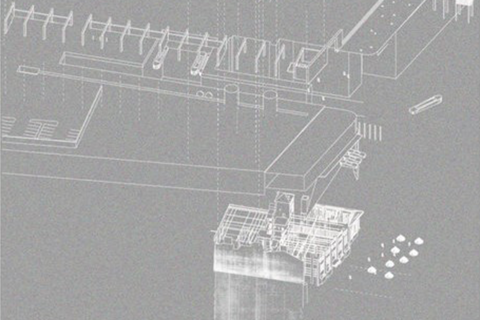Bezalel News
חדשות בצלאל
أخبار بتسلئيل
Digitizing Jerusalem’s Archives: Urban Heritage in the age of Digital Cultural
'Jerusalem Archives', a collaboration of Jerusalem Development Corporation (HARLI) and Bezalel Academy of Arts and Design Jerusalem, is an extensive project of heritage documentation and digitization which aims to locate, expose, and digitize official and personal documentation pertaining to the city's modern building and planning. The main objective of the project is to provide access to historic collections of Jerusalem planning and architecture for improving sustainable development and conservation practice and for enhancing heritage research and democratization. Upon completion of the first stage of project we wish to bring together researchers and practitioners whose work relates both to the technical as well as to the more substantial issues relating to the digitization of urban heritage and its interpretation, grouped under three headings:
Theme I: Cultural heritage in the digital age: Digitizing Jerusalem Archives
Theme II: Digital heritage and the Historic Urban Landscape Approach
Theme III: Democratizing/interpreting Jerusalem’s heritage
The exposition of historic archival material and its digitization is one way of contributing directly to the documentation necessary for the application of the historic urban landscape approach, ensuring integrative planning for sustainability, through the interpretation and support of diverse historical narratives. The digitization of archival material is considered an important step towards making such material available and allowing the democratization of urban heritage. The actual digitization and datascaping, furthermore, will enrich the knowledge by connecting to existing library catalogues, collections, and official databases such as the national archaeological data as well as city data to support the integration of cultural heritage in planning processes.
However, identifying, sharing, and the conservation of urban heritage are challenging tasks, as cultural and historic landscapes are often disputed and under threats from development. In a changing world of socio-economic transformations and in political instability, the needs to continuously evaluate places and sites as 'heritage' brings up questions of both space and substance – which values? whose heritage?
These are also essential issues, as the task of digitization – which includes identification, digitization and most of all, cataloging the archive – is as much a matter of personal and cultural interpretation as it is of technical exposition. For example, which historical frameworks should be used as reference? Which terms and names and languages should be used for identifying people or places; and which vocabularies and semantic data should be used for categorizing databases of the various cultures and societies, both tangible and intangible? How to apply design guidelines in safeguarding the values? Which communities should be called upon to contribute and how may they participate in the identification of sites using digital technologies?
Some technical questions which may rise include, which material is considered important enough to be digitally handled, and where could they be found? Which platforms are most suitable for the creation, analysis and visualization of digital archives and collections? How to manage copyrights, the verification of data and ethics? Which sets of maps should be used for the geographical layout of urban sites and landscapes? How to collaborate with official, municipal and other conservation systems and mechanisms? and finally, how to set up an integrative data base to give heritage a function in the life of the community?
We thus invite contributions which may discuss the following:
- Digitizing archives / methods: Collecting Urban Heritage; Digital Futures in and for Heritage; Future Methods and Approaches to Critical Heritage; collecting heritage / documenting; digital mapping.
- Applying the Historic Urban Landscape Approach: Inter-disciplinarity beyond the historic center; the Futures of Urban Heritage; Future Policies and Politics of Heritage and its integration in planning processes; heritage and urban regeneration.
- Democratizing heritage: Narrating and interpretating heritage; shared heritage(s); alternative heritage geographies; heritage walks and visual urban storytelling; local communities, local heritage; participatory and activist heritage; migrants’ heritage; contesting historiography of cultural heritage sites; mapping difference.
Please send a 300-word abstract, by November 15th, 2021 to: rubinnoah@post.bezalel.ac.il The conference is planned to take place in Jerusalem according to current Covid regulations, yet will be conducted in hybrid manner, allowing Zoom presentations from afar.






